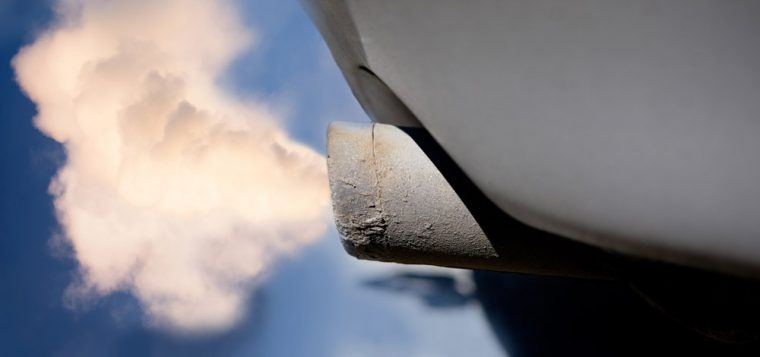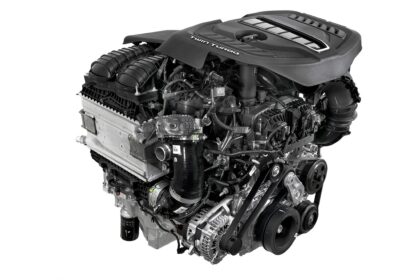
Your car’s catalytic converter will typically last the entire lifetime of your vehicle. While this pollution-busting device is designed to be durable, it’s not invincible — and the signs that it’s failing may not be obvious. Here’s a look at some common cues of a faulty catalytic converter.
If Your Car Needs a Complex Repair: Choose certified service from factory-trained technicians
Did you catch a whiff of something that smells like rotten eggs? During combustion, the sulfur in gasoline can produce a foul smell, which is usually neutralized by a functional catalytic converter. If that stink is escaping, it’s a sign that your converter isn’t taking care of other emissions, either.
Dealing with a “check engine” light? It can mean a lot of different things, so take your vehicle in for a diagnostic scan. If the trouble code reads P0420 or P0430, it usually means the catalytic converter is at fault.
If your vehicle is expelling an excessive amount of smog, it’s possible that it’s having catalytic converter issues. That said, the pollution your car is producing isn’t always visible. A bad converter is likely to cause your car to fail an emissions test.
Has your car’s acceleration taken a hit? Since a faulty catalytic converter can reduce airflow to your engine, it can reduce both its performance and efficiency. If your ride isn’t achieving its usual fuel economy — and is struggling to pass other vehicles, tow trailers, and make it up steep inclines, it could be a sign that its converter is clogged and preventing the engine from running at full capacity.
Notice a rattling sound when you’re idling or starting up your vehicle? It could be chips from the honeycomb-like lattice inside your car’s catalytic converter. If this seems to be coming from the exhaust system, have the catalytic converter inspected and replaced, if need be. Those bits of debris rattling around in there could become lodged in the muffler. That could make your vehicle stall out — or even prevent it from starting up entirely.
According to Mark Stevens, a contributor to CarTreatments.com, catalytic converter damage often comes from engine issues. An off-kilter air/fuel mixture, a bad oxygen sensor, faulty spark plugs, and poor engine timing can cause unburned fuel to leave the combustion chamber. That can drive up temperatures inside the component and cause the precious metals inside it to melt.
The component can also take damage from other fluids leaking into it. Bad seals and gaskets can allow oil or antifreeze to seep into the catalytic converter, rendering it unusable. And if it’s clogged, it can prevent exhaust from escaping, causing your engine to overheat.
Physical damage can also put your converter out of commission. Since it’s located on the exhaust pipe, between the muffler and exhaust manifold, it’s susceptible to damage from road debris, potholes, and rough terrain. If the component or its interior parts become damaged or deformed, it could prevent it from working properly.
Need a Replacement Part? Get genuine warranty-backed GM parts
Don’t let your car’s problems go unaddressed — check out these signs that your vehicle needs immediate service.
Kimiko Kidd is a native Daytonian. She graduated from Wright State University with degrees in environmental science and sociology. She loves her trusty old Honda Civic, but dreams of owning a 1974 Ford Falcon XB with a custom paint job and a vintage Kawasaki Z1000. In her free time, Kimiko can be found watercolor-painting, baking muffins, collecting rocks, playing old-school Nintendo games, writing her novel, sewing stuffed animals, and cosplaying as her favorite Mad Max characters. See more articles by Kimiko.








